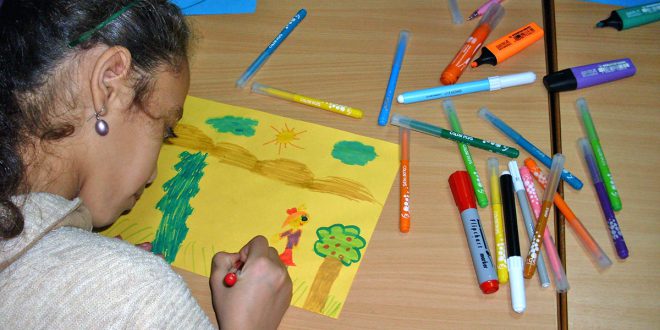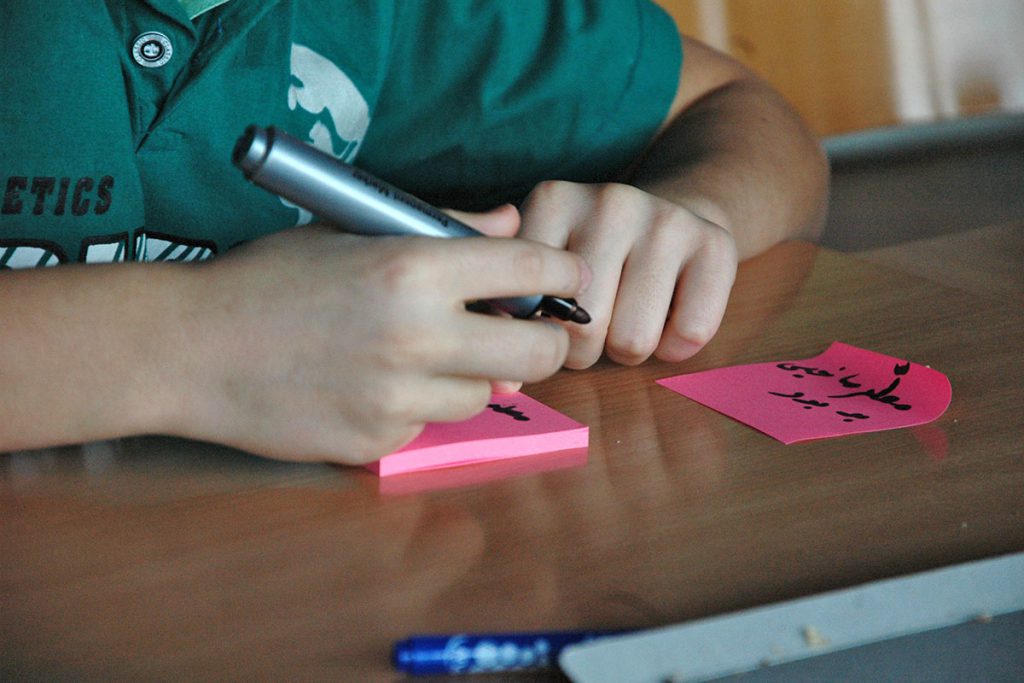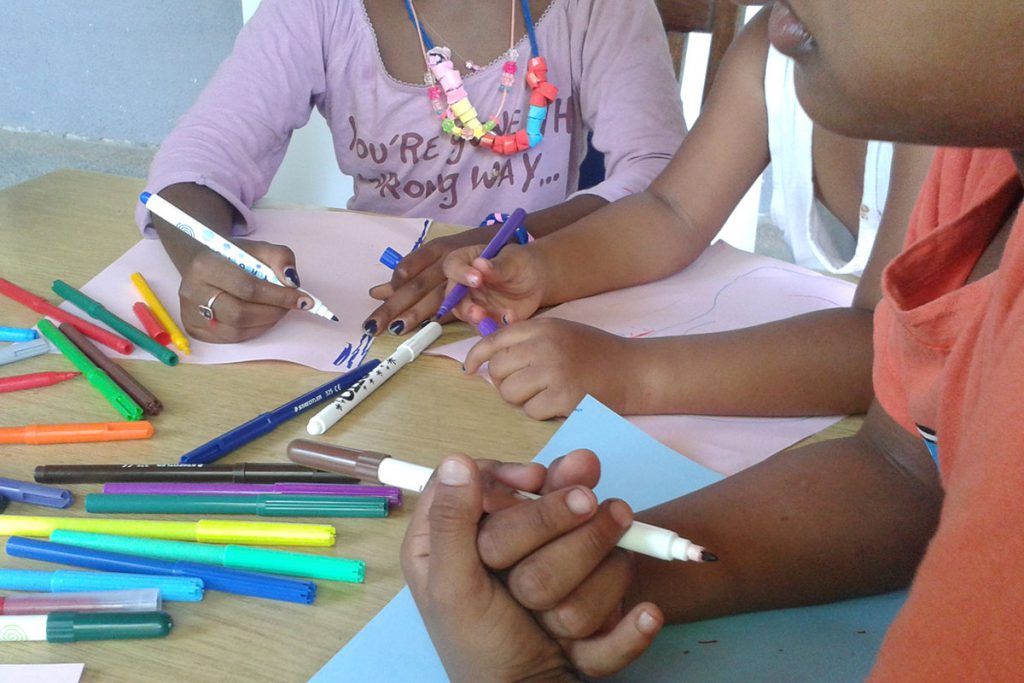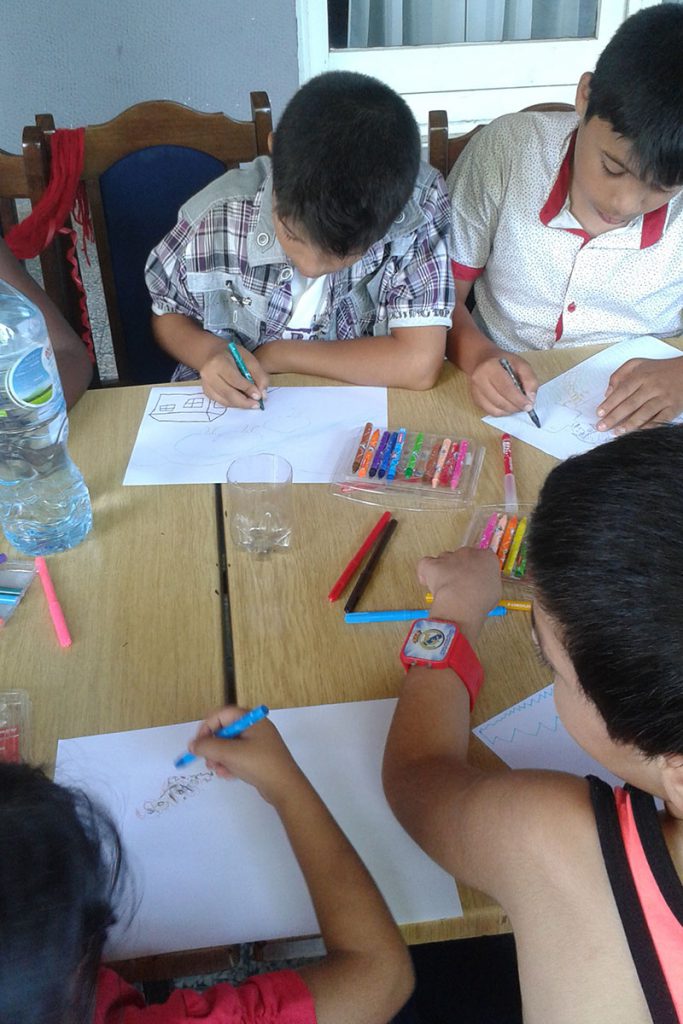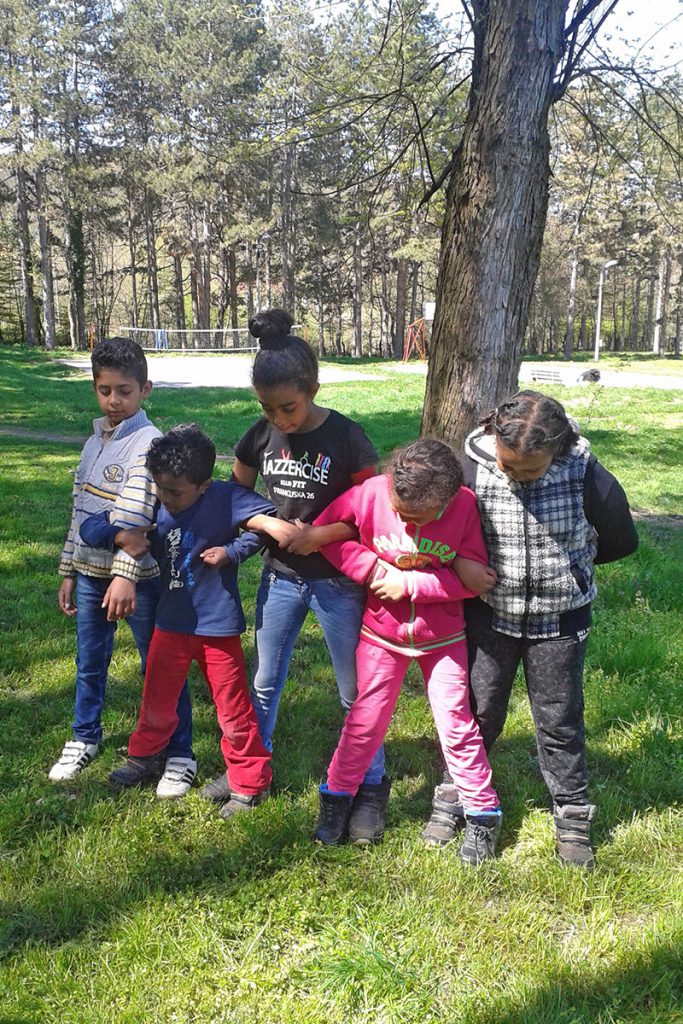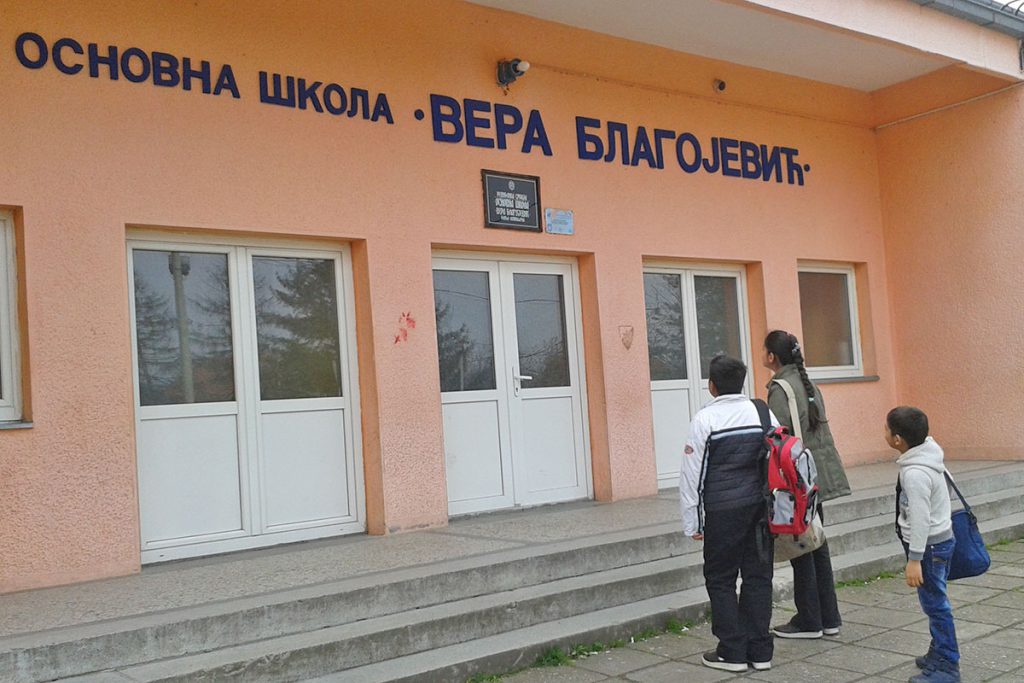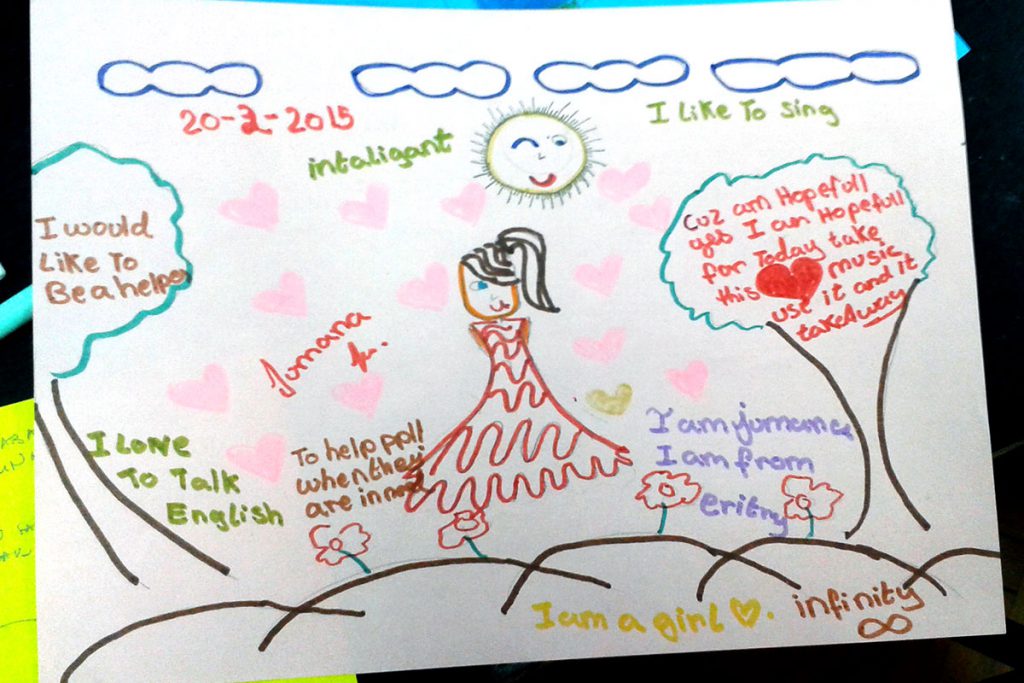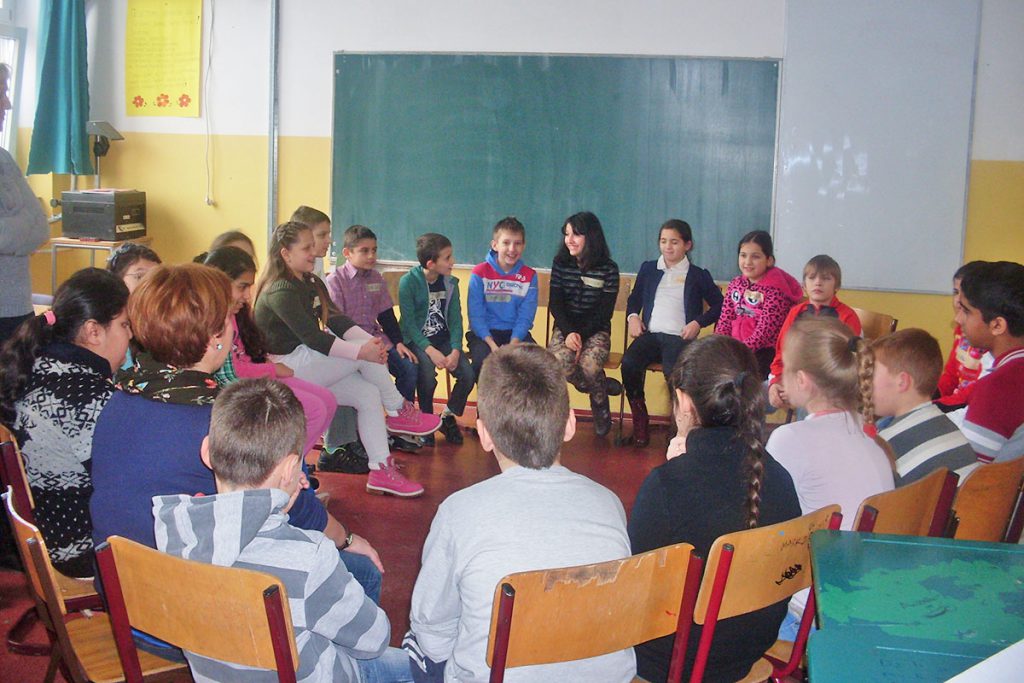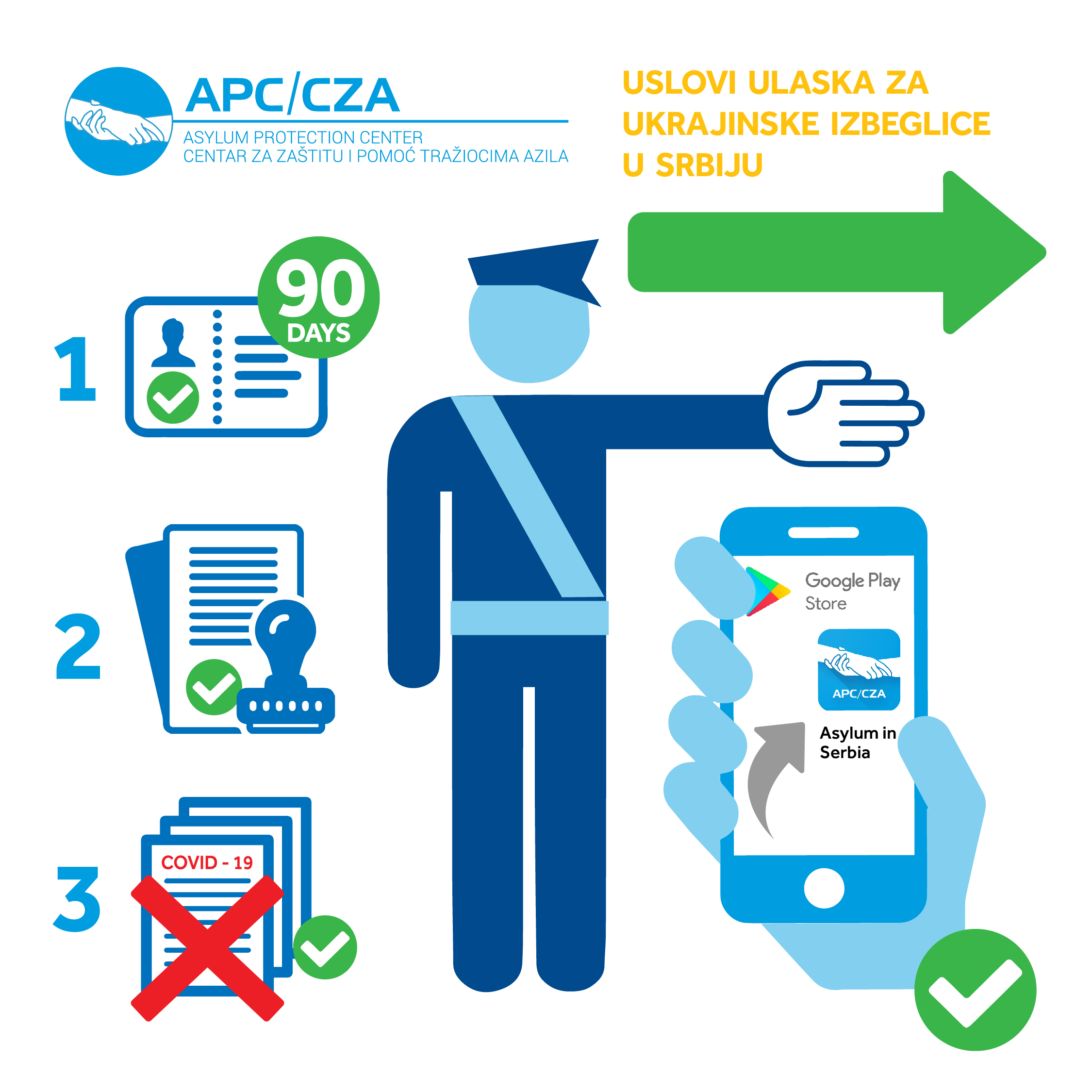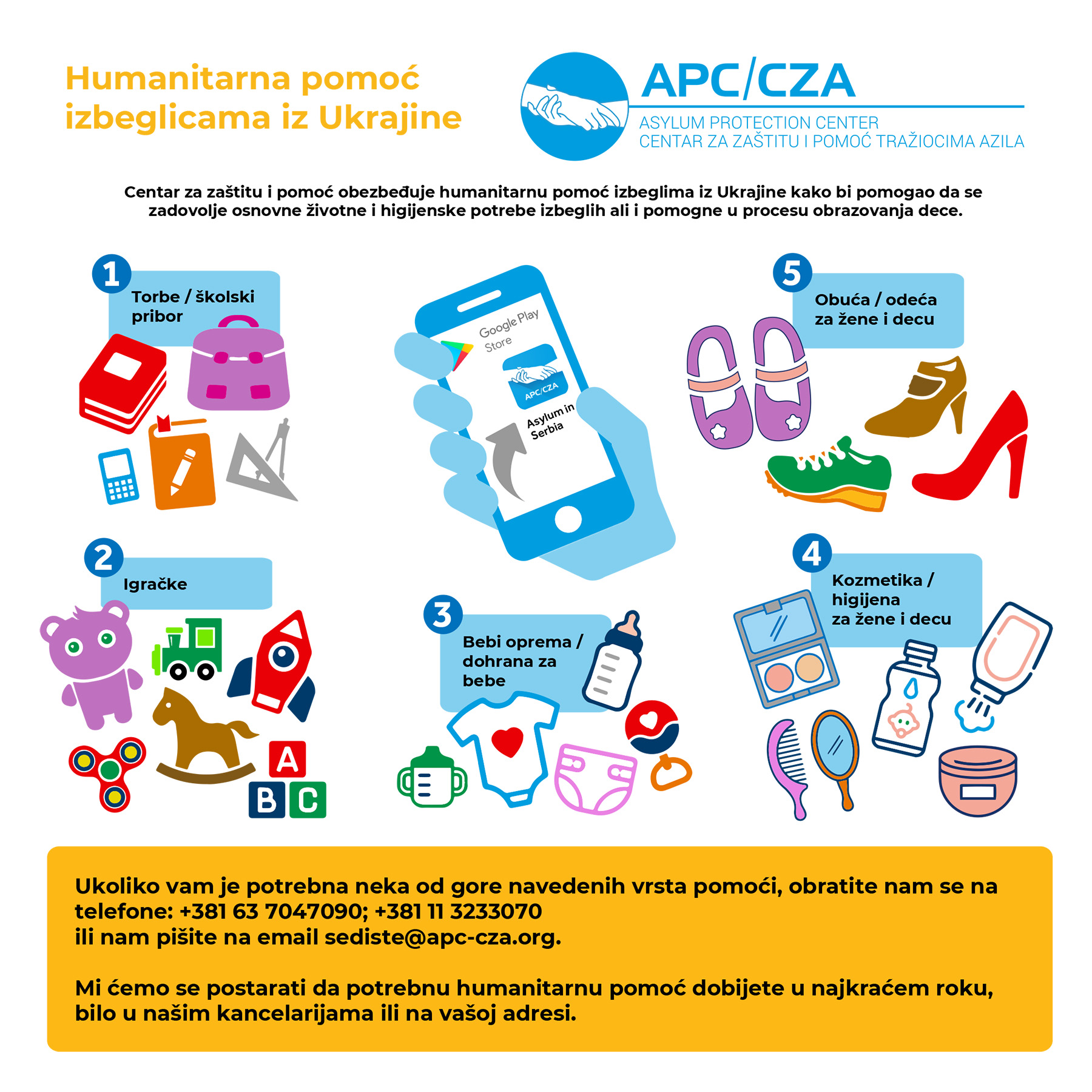Workshops with asylum seeking children are regularly realized in all Centers for Asylum, (Banja Koviljaca, Bogovadja, Sjenica, Tutin, Krnjaca, Belgrade) in transit centres across country (Vranje, Bujnovac, Presevo, Pirot, Bosilegrad, etc.), in APC field offices and at the Shelter for the Upbringing of Children and Youth in Belgrade and in Nis, and in JRS Shelter for asylum children in Belgrade, with the aim of empowering children through active participation using artistic techniques, (drawing, making crafts, collages) – through which the children are able to indirectly speak about their experiences and problems in their countries of origin, situations they may have endured on their journey, their expectations and their future plans. APC/CZA pedagogues and psychologist initiate and host all workshops while the themes addressed within them are adapted to the interests and needs of the specific groups of children with whom they are working with at that given moment. In order to provide proper support in adapting to the current situations they are enduring, all of the problems of asylum seeking children are addressed as content during these various workshops. All of the workshops that are being realized have a socialization characteristic and through them, the children are able to stimulate working on interpersonal relationships, constructive approaches to conflicts, integration with children from the local community, development of capacities for participation in structured group activities, as well as having a creative use of their time during their stay in Asylum Centers. Through group work, they learn positive behavioral attributes, have group discussions and learn how to individually strengthen their own tolerances in life. It is through their presentation of ideas in a group setting that ultimately their own self-confidence is raised.
- Workshops on Psychological Empowerment address issues of identity, problems asylum seeking children encounter during their journey, their motivation to persevere on their journey and fight existing challenges and obstacles, their outlook of Serbia and their actual position, future expectations and expectations from the integration.
- Cultural Workshops aim to present the cultures from which asylum seeking children come from and to gain insight into other cultures, above all, the Serbian culture – but also the specific circumstances of coexistence with a large number of people coming from different cultures, with different customs, habits and needs. Getting acquainted with Serbian culture makes it easier to include asylum-seeking children in the local environment in the future – i.e. going to a doctor, shopping, going to the post office, and having interactions with children and adults from the local community.
- Creative workshops enable asylum seeking children to develop imagination through the use of various artistic techniques (drawing, crafts, and collages) and express their needs and abilities, and skills in a creative way. Particularly interesting are the kite making workshops in which children from all countries of origin are delighted and thoroughly enjoy the idea, considering that games around kite-flying are some of the most popular in Asia amongst children, but also with adults. Kite-making workshops attract the attention of the local community and peers who are equally as eager to respond to the lessons in the workshop.
- Language workshops allow asylum seeking children to get acquainted with the basics of Serbian and English language through learning languages’ basics as well as important words and phrases, helping minors to orientate, express their own needs, helping them in buying, in school, in their every day life, to get familiar with medical terminology, etc. that will help minors in interaction with the local communities and ease their process of education and attending classes.
- Adaptive workshops include children empowering workshops and children expression workshops both provided to children that are recently coming to the system, still in strong need for adaptation and socialization. Topics such as resolving conflicts, communication styles, expressing and dealing with emotions, strengthening old and adopting new coping skills, forming social relations, stress management are addressed through adaptation empowering workshops, while topics structured around tales and myths from countries of origin, as well as from nondominant cultures, different stories about journies, and connection of all this with the personal experiences of children is addressed by adaptation expression workshops allowing newcomer children to bridge partially the gap between the past and the present, the culture of origin and the host country culture, life in family and life in community, and also the internal and external world of the child. Activities combine verbal and nonverbal means of expression such as drawing or painting a picture and telling or writing a story, with individual and group work. Through adaptation workshops, by creating safe place, children are building meaning of what was happening to them, working through their losses, building bridge between their past and present, and how to unite it with their own. They are becoming more aware of the circumstance in which they are, more adaptable and flexible, and gaining skills to deal with reality. Adaptation children workshops are conducted in a mix gender group up, held in an interactive manner, where participants are encouraged to share their personal experience, question their point of view, observe and build new attitudes, develop new skills.
- Interaction/integration workshops are deepening interaction and facilitating integration of minors and youth in local communities increasing their abilities to overcome integration challenges, discrimination and other problems within local communities and seek for support of domestic, local citizens in order to overcome it. Participants with different background are learning how to cooperate, discuss the tasks, analyse, learn from each other, strengthening their capacities to understand cultural differences and different needs. All activities promote inclusive society.
Through cooperation with local institutions, primarily with schools and cultural centers, joint workshops formal and informal gatherings of asylum seeking children, and children from local communities are carefully planned out and realized.
Most of the program activities are initiated for children ages 7 to 12, and 12 to 15, and 15 to17 while with the youngest children (up to 4 years of age) the work is realized through ad hoc activities and free play. This includes, presence of their mothers who are spoken to regarding the child’s upbringing.
Particular attention is paid to unaccompanied minors who are temporarily accommodated at the Shelter for the Upbringing of Children and Youth in Belgrade and in Nis, as well as in JRC shelter in Belgrade, through individual and group pedagogical and psychological counseling and workshops before they are sent to the accommodation in Asylum Centers in Serbia. Furthermore, minors are introduced into differences between Serbian culture and the culture of the country they were coming from. They are empowered to accept current situation in which they are in at the moment and to develop a constructive approach to the problems.
 AzilSrbija AzilSrbija
AzilSrbija AzilSrbija

